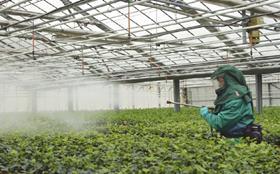
A federal government agency has banned pesticides containing the toxic chemical endosulfan, in a move that could affect a wide range of industries that still use the pesticides.
The Sydney Morning Herald has reported many tropical fruit and vegetable producers, as well as nut and cotton growers, still use pesticides containing endosulfan.
The Environment Department and the Department of Health and Ageing stated in a report there was substantial evidence endosulfan is highly toxic and low exposure to the chemical in most animal groups shows both acute and chronic effects.
''The continued registration and approval of endosulfan in Australia is likely to have unintended effects on the environment that cannot be mitigated,'' the report stated.
The federal agency responsible for the new ruling, the Australian Pesticides and Veterinary Medicines Authority, had previously resisted calls to deregister pesticides that contain endosulfan, the Sydney Morning Herald reported. New research that has emerged since 2007 was responsible for its change of position.
The ruling will bring Australia more in line with other developed nations, such as New Zealand and the EU member states, which are among 60 other countries with a ban on the use of the chemical already in place.
The US Environmental Protection Agency has also said it would move to ban endosulfan in the US because of unacceptable ''neurological and reproductive risks to farm workers and wildlife''.
Earlier this year the Stockholm Convention on Persistent Organic Pollutants listed endosulfan as a ''persistent pollutant''.
The ruling is expected to impact heavily on the pesticide industry, the Sydney Morning Herald reported.
Queensland Farmers Federation (QFF) spokesman Dan Galligan told the ABC growers will have to move to more expensive alternatives, as the use of the pesticides are phased out over the next two years, unless consumers are willing to accept fruit with more blemishes.
'Less pesticides is a good thing for farmers because they'll get more on the bottom line for them,' he said.
'But often they are pushed towards that higher quality of protection purely because of consumer demand,” he added.
'Its certainly a good thing if consumers can appreciate that a few blemishes doesn't really matter and that's a better thing for farmers and a better thing for the environment.'



